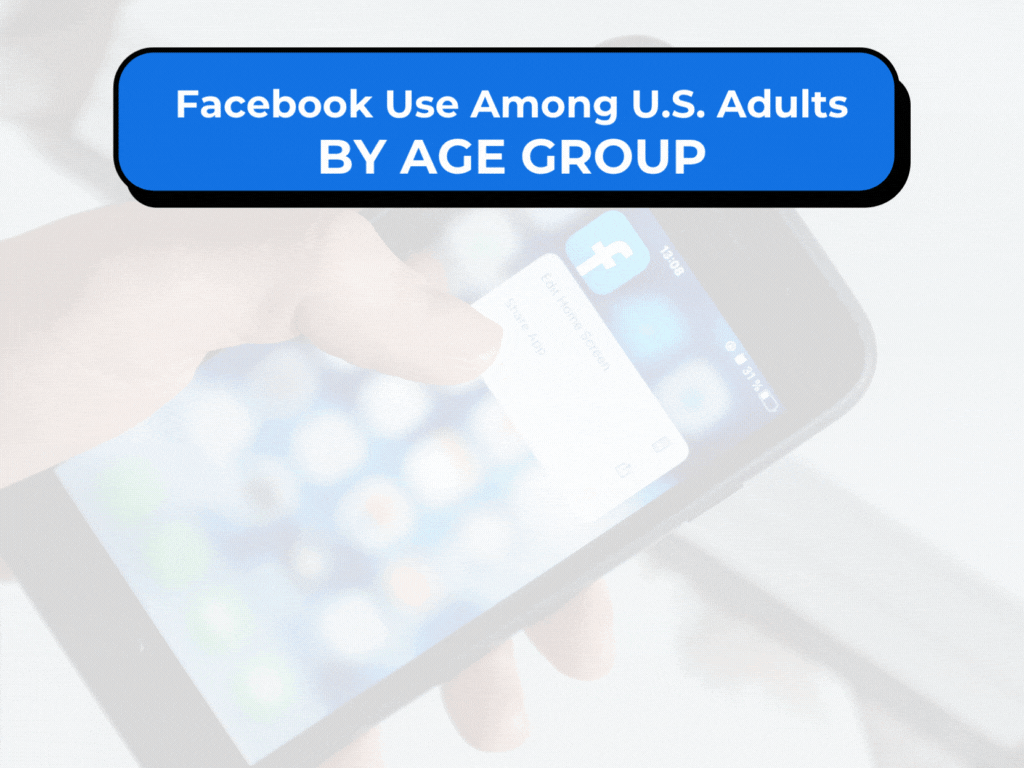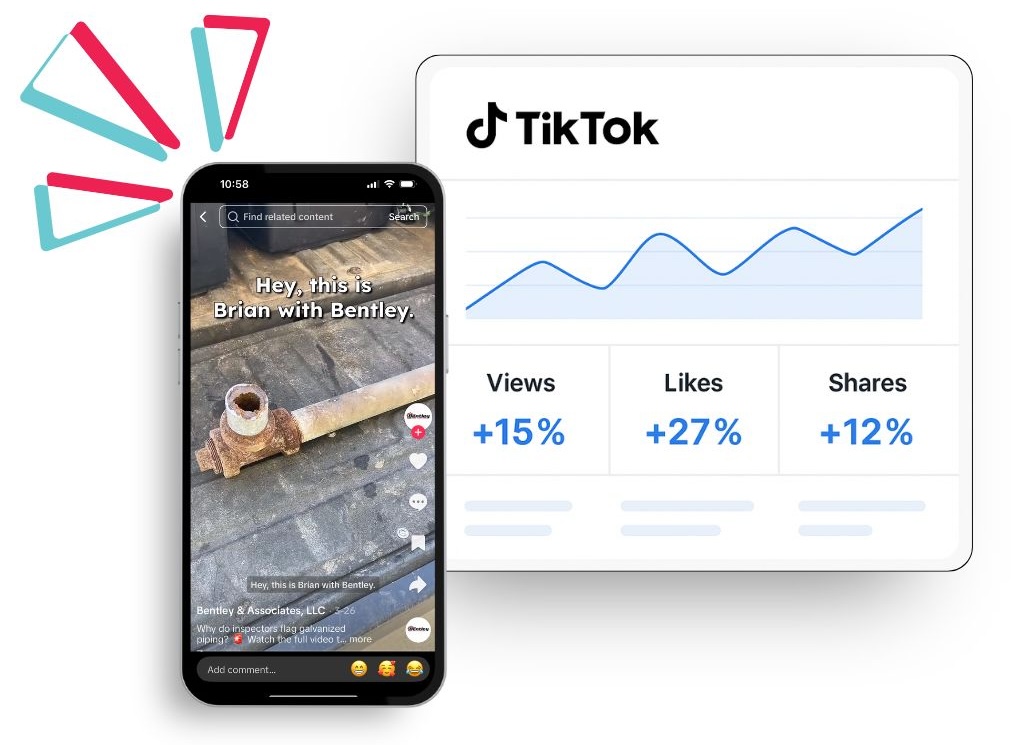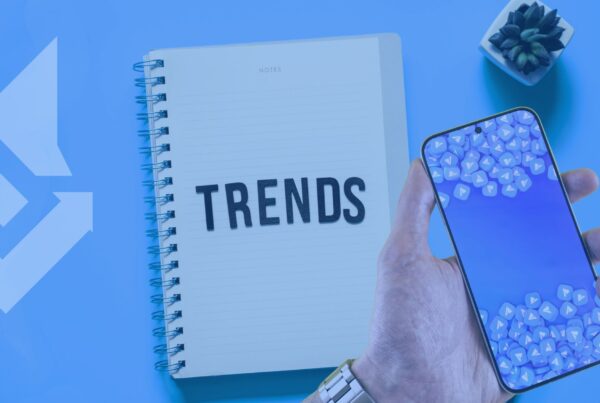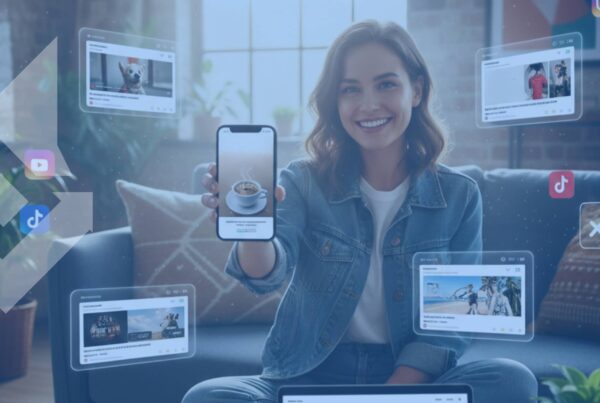Last updated on December 19th, 2025 at 02:20 am
Let’s be real. Posting a few times a week won’t magically fill your schedule. Social media only works if you use it with a clear purpose and pick the platforms, formats, times, etc. that make sense for your business and audience. These are the pros and cons of social media, for 5 popular platforms, from a professional and individual perspective.
You’ll learn which ones are worth your time, what they can realistically do for you, and how to match your goals with the right strategy.
Contents
Start With a Goal in Mind
Before you jump into posting, take a step back and ask yourself what you want social media to actually do for your business.
Are you hoping to get more local leads? Do you want to stay top-of-mind in your community? Are you looking to build trust or connect with referral partners?
Every platform works differently. Some are good for reaching a lot of people quickly. Some help you build relationships. Others are more about showing off your work and personality.

If you’re not clear on your goal on the platform, your content reflects that, and you’ll end up spending time on tasks that don’t actually move the needle.
Solid Local Reach, but Pay-to-Play
Facebook is still the most widely used platform among U.S. adults, especially those over 30. It’s a solid place for local visibility, but organic (unpaid) reach has dropped over the years. To really see results, you’ll likely need to run ads.
What works well:
- Easy to create a business page with contact info, reviews, and updates
- Customers can send messages, ask questions, and leave feedback
- Paid ads allow you to target specific areas, age groups, and interests
- Helps you stay active and visible in community groups
What’s challenging:
- Posts don’t reach many people unless you boost them
- Running effective ads takes budget and some trial and error
- Engagement from younger users has dropped off
Bottom line:
If you’re trying to reach local homeowners and you have a small ad budget, Facebook is a smart choice. It’s also a must if you’re focused on building up online reviews.

Great for Branding, Not as Strong for Traffic
Instagram is all about visuals. If you have photos of your work, team, or day-to-day process, this is where they’ll shine. But it’s harder to turn followers into website traffic or phone calls, unless you’re also running ads or using other tools.
What works well:
- Before-and-after shots, team photos, and service walkthroughs build trust
- Stories and Reels help boost engagement
- The platform feels personal and approachable
What’s challenging:
- You can’t add clickable links to posts (only one in your bio)
- Growth is slow without consistent content and effort
- It’s not a strong lead generator on its own
Bottom line:
Instagram works best as a brand builder, not a lead machine. Use it to stay top of mind, show your face, and highlight your work, but don’t expect it to drive calls without other strategies in place.
TikTok
High Reach, Low Conversion
TikTok offers huge reach potential, even for brand-new accounts. But most content is designed to entertain, not convert. If your business depends on trust, TikTok might not be the most reliable tool.
What works well:
- Videos can reach thousands of people without needing a big following
- Behind-the-scenes clips, tips, and trends get strong engagement
- Younger homeowners are active on the platform
What’s challenging:
- Creating and editing videos takes time
- Staying relevant means posting often and following trends
- Viewers may enjoy your content, but still not hire you
Bottom line:
TikTok is best for brand awareness and creativity. If you’re comfortable on camera and enjoy making short videos, it can help people remember your name. But don’t count on it for leads unless it’s part of a larger marketing plan.

High Trust, Low Reach
LinkedIn isn’t built for finding customers directly, but it’s powerful for building partnerships. If your business relies on referrals from agents, builders, or other professionals, this is where those relationships can start.
What works well:
- Great place to connect with local professionals
- Lets you share helpful insights, project highlights, or business updates
- Builds authority over time when used consistently
What’s challenging:
- You’ll reach fewer people than on other platforms
- Requires a more professional tone and posting schedule
- Doesn’t drive direct customer leads in most cases
Bottom line:
Use LinkedIn if referral partners are part of your growth strategy. It’s not ideal for everyday visibility, but it’s strong for long-term business connections.
YouTube
Long-Term Value, Takes Commitment
YouTube is a search engine. When done right, videos here can keep working for you long after they’re posted. But creating quality content takes planning, time, and consistency.
What works well:
- Home tips, how-to videos, and service explainers build trust and visibility
- Videos show up in Google search results and can support your SEO
- Content sticks around much longer than on social feeds
What’s challenging:
- Filming and editing takes time and tools
- You need to post consistently to see growth
- Results may take months to build up
Bottom line:
If you’re already investing in content marketing or SEO (social media, blogging), YouTube is a strong addition. Try posting your Instagram Reels and YouTube Shorts and watch what kind of content performs better!
| Platform | Pros | Cons |
|---|
| Local trust, reviews | Limited organic reach |
| Visual branding | Low traffic |
| TikTok | High reach, fast growth | Low conversion |
| Referral potential | Limited reach |
| YouTube | Long-term visibility | Time-intensive |
Beyond Social
Social media is just one part of your online presence. It helps with visibility and trust, but it works best when paired with tools that bring in steady leads.
If you’re serious about growing, here’s what else makes a real difference:
- Local SEO: Helps you show up in Google Maps and local searches
- Google Ads: Brings in ready-to-book customers
- Online Reviews: Build trust and improve your ranking
- Blog Content: Educates homeowners and supports long-term traffic
Most of the time, the leads that turn into real revenue come from search, not social. Social is great for reminding people who you are. SEO is what gets you found when they’re ready to buy.
Want Smarter Strategy?
At WolfPack Advising, we help service-based businesses focus on what actually drives results. From SEO and ads to online reviews and smart content, we’ll help you skip the guesswork and build a strategy that works.
If you’re not sure which platforms are worth your time, or you’re ready to stop wasting money on stuff that doesn’t convert, let’s talk.





